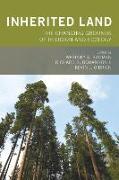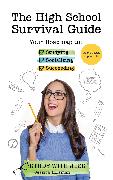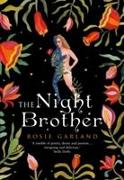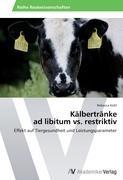Inherited Land
BücherAngebote / Angebote:
Religion and ecology" has arrived. What was once a niche interest for a few academics concerned with environmental issues and a few environmentalists interested in religion has become an established academic field with classic texts, graduate programs, regular meetings at academic conferences, and growing interest from other academics and the mass media. Theologians, ethicists, sociologists, and other scholars are engaged in a broad dialogue about the ways religious studies can help understand and address environmental problems, including the sorts of methodological, terminological, and substantive debates that characterize any academic discourse. This book recognizes the field that has taken shape, reflects on the ways it is changing, and anticipates its development in the future. The essays offer analyses and reflections from emerging scholars of religion and ecology, each addressing her or his own specialty in light of two questions: (1) What have we inherited from the work that has come before us? and (2) What inquiries, concerns, and conversation partners should be central to the next generation of scholarship? The aim of this volume is not to lay out a single and clear path forward for the field. Rather, the authors critically reflect on the field from within, outline some of the major issues we face in the academy, and offer perspectives that will nurture continued dialogue. "While map is not territory, Inherited Land is a splendid guide to the expanding field of Religion and Ecology. Tracking the shifting contexts, complexities, and promise of Religion and Ecology will grow even more important in the days and decades ahead. These essays show the way." -Larry Rasmussen Reinhold Niebuhr Professor Emeritus of Social Ethics Union Theological Seminary, New York City "This splendid essay collection decisively moves religion and ecology studies beyond present parameters, convincingly demonstrating how solutions to the present ecological crisis depend not only on moral and spiritual reform but also on social, environmental, and cross-cultural relationships. In short, on 'knowing one's place.' This requires embodied knowledge situated in networks of relations, practices, and space/place and consequently, the rejection of any assumption that the natural world must conform to our ends and desires." -Anne Primavesi, author of Cultivating Unity Within the Biodiversity of God (2011) "This is the first collection of essays by a new generation of scholars who have focused on religion and nature from the beginning of their careers. It helps both to define the field as it now stands and to identify new directions for the future. In particular, the authors call attention to the centrality of lived practice, to the tensions between scholarship and advocacy, and to the need to consider not only ecological but also social issues, including technology. Their criticisms are constructive, their research careful, and their ideas well worth reading, discussing, and teaching." -Anna Peterson Department of Religion University of Florida Whitney A. Bauman is Assistant Professor of Religion and Science at Florida International University in Miami. He is the author of Theology, Creation, and Environmental Ethics (2009) and coeditor with Richard R. Bohannon II and Kevin J. O'Brien of Grounding Religion: A Field Guide to the Study of Religion and Ecology (2010). Richard R. Bohannon II teaches at the College of St. Benedict and St. John's University in Minnesota. He is coeditor, along with Whitney A. Bauman and Kevin J. O'Brien, of Grounding Religion: A Field Guide to the Study of Religion and Ecology (2010). Kevin J. O'Brien is Assistant P
Folgt in ca. 10 Arbeitstagen




